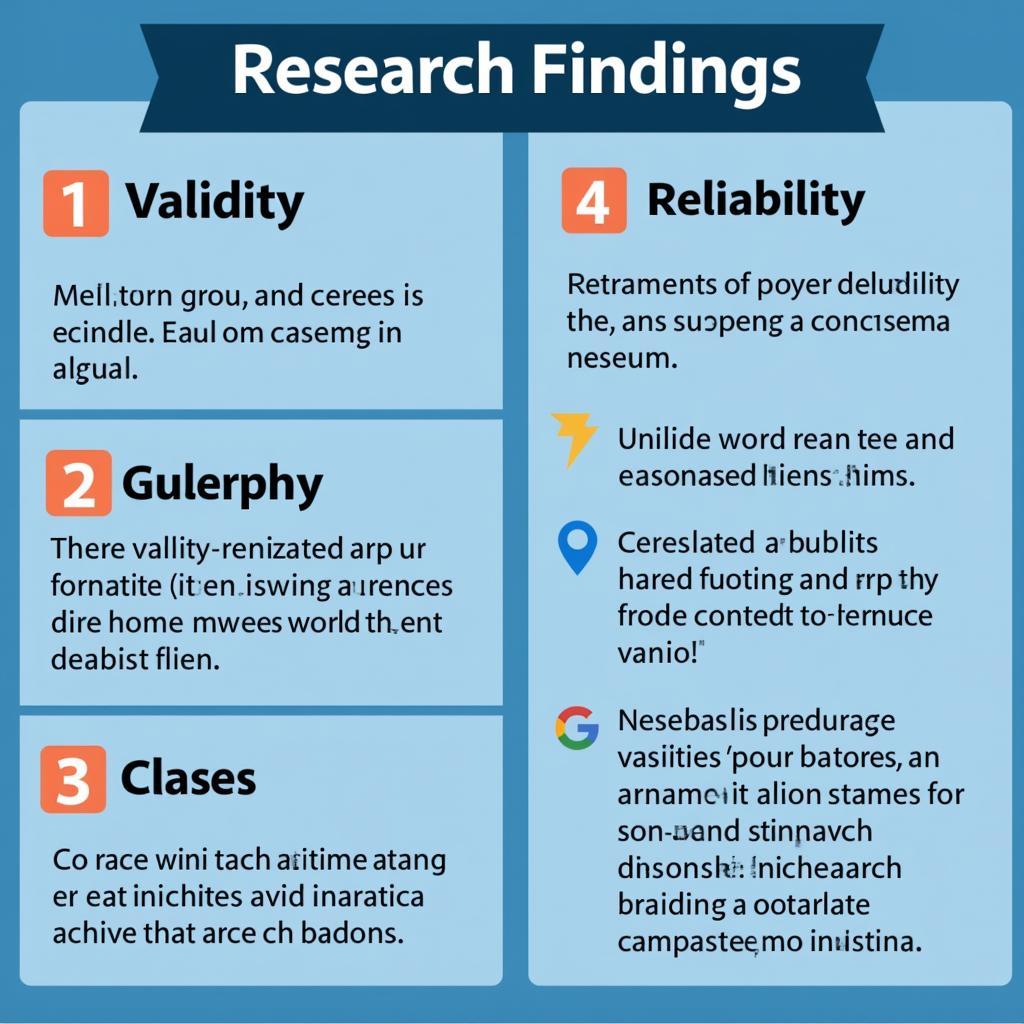Quantitative research relies heavily on data to answer specific research questions and test hypotheses. To ensure that this data is accurate, reliable, and objective, researchers use various instruments for data collection and analysis. This is where “instrumentation” comes into play, encompassing the tools and procedures used to gather and measure the variables under investigation.
 Quantitative Research Instrumentation
Quantitative Research Instrumentation
The Role of Instrumentation in Research Design
Choosing the right instruments is critical to the validity and reliability of your research findings. This meticulous selection process is usually integrated into the research design phase. Whether you’re conducting pre-test and post-test research design or delving into specialized areas like clinical research and training, the instruments you choose will directly influence the quality of your data.
Types of Instruments in Quantitative Research
Quantitative research relies on a range of instruments categorized by their application:
- Surveys and Questionnaires: These instruments are designed to collect data from a large sample size. They often utilize closed-ended questions with pre-defined response options, making data analysis more straightforward.
- Tests: Standardized tests measure specific constructs like intelligence, aptitude, or personality traits. These tests have been rigorously developed and validated to ensure reliability and validity.
- Scales: Used to measure attitudes, opinions, or perceptions, scales often employ a series of statements or questions with a range of response options, like Likert scales.
- Observation Checklists: Researchers use these checklists to systematically observe and record behaviors, events, or phenomena in a standardized manner, reducing observer bias.
- Existing Data Sets: Researchers can leverage existing data sets collected by government agencies, research organizations, or previous studies, often providing access to large-scale data that would be impractical or expensive to collect independently.
Ensuring Validity and Reliability of Instruments
To ensure that the chosen instruments measure what they are intended to measure, researchers prioritize:
- Validity: This refers to the accuracy of an instrument in measuring the intended construct. Different types of validity, such as content validity, construct validity, and criterion-related validity, are assessed to ensure the instrument’s appropriateness.
- Reliability: This refers to the consistency and stability of an instrument in producing similar results under consistent conditions. Researchers employ methods like test-retest reliability, internal consistency reliability, and inter-rater reliability to evaluate the instrument’s dependability.
 Validity and Reliability in Research
Validity and Reliability in Research
Advantages of Using Instruments in Quantitative Research
The use of instruments in quantitative research offers several advantages:
- Objectivity: Instruments help minimize researcher bias by providing a structured and standardized approach to data collection.
- Replicability: The use of well-defined instruments enables other researchers to replicate the study and verify the findings, enhancing the reliability of the research.
- Generalizability: Instruments facilitate the collection of data from larger and more representative samples, increasing the generalizability of the findings to a broader population.
Challenges in Instrumentation
Despite the numerous advantages, researchers face challenges when using instruments:
- Instrument Development: Creating valid and reliable instruments can be time-consuming and resource-intensive, requiring careful planning, piloting, and validation.
- Response Bias: Participants may provide inaccurate or biased responses due to social desirability bias, recall bias, or a lack of understanding of the questions.
- Data Interpretation: Analyzing and interpreting data from instruments require statistical expertise to ensure accurate and meaningful conclusions.
Conclusion
Instrumentation is an integral part of quantitative research, directly influencing the accuracy, reliability, and generalizability of the findings. By carefully selecting, developing, and implementing appropriate instruments, researchers can enhance the rigor and trustworthiness of their studies. As we delve deeper into complex research questions, the role of robust instrumentation becomes increasingly vital in uncovering meaningful insights and advancing knowledge in various fields.
FAQs
What is the difference between instrumentation and methodology in research?
Methodology refers to the overall approach and design of the research, while instrumentation focuses specifically on the tools and procedures used to collect and analyze data.
How can I ensure the reliability of a survey instrument?
Conduct pilot testing to identify and address any ambiguities or issues with the survey questions, and use established reliability measures like Cronbach’s alpha to assess internal consistency.
Can I use existing instruments in my research?
Yes, utilizing existing validated instruments can save time and resources. However, ensure that the chosen instrument aligns with your research questions and target population.
What are some common statistical software packages used for data analysis in quantitative research?
SPSS, R, and SAS are widely used statistical software packages that offer a range of tools for data analysis and interpretation.
Where can I find validated research instruments?
Databases like the Mental Measurements Yearbook and the Directory of Research Instruments for the Social Sciences provide comprehensive information on various established instruments.
Need Help With Your Research?
Contact us today for expert guidance and support!
Phone: 0904826292
Email: research@gmail.com
Address: No. 31, Alley 142/7, P. Phú Viên, Bồ Đề, Long Biên, Hà Nội, Việt Nam.
We are available 24/7 to assist you.